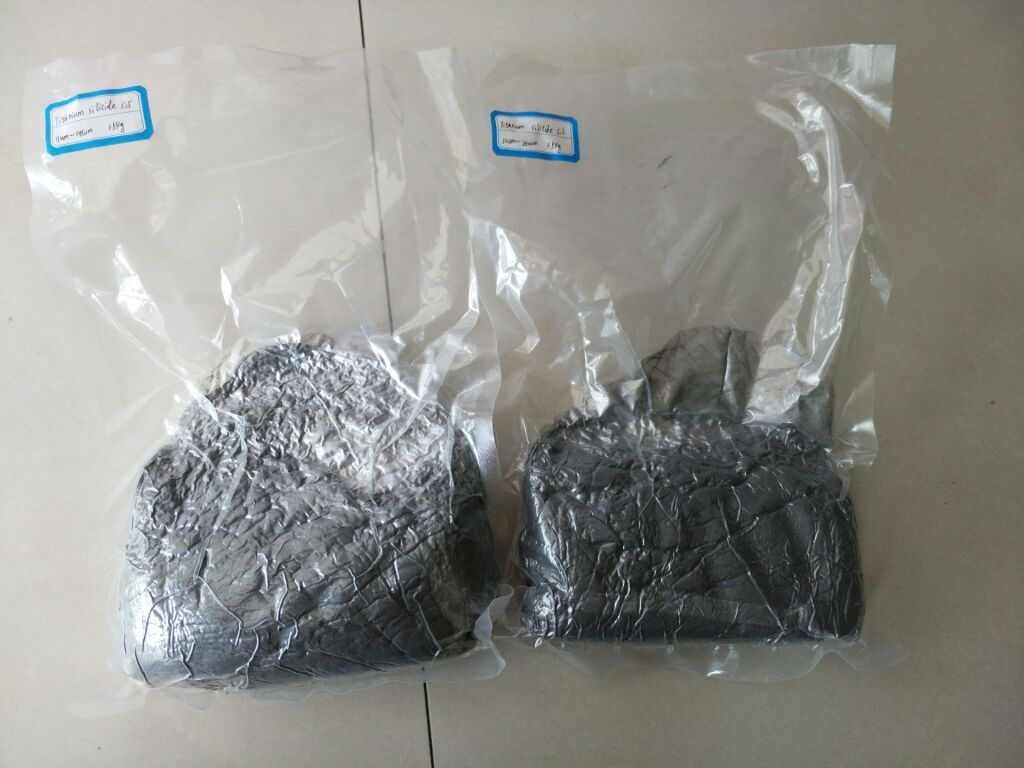Titanium silicide is dark gray square crystals, which is available in powder and targets. It is a kind of metal silicides.Titanium metal and silicon metal are raw materials. It owns high conductivity and high temperature stability. There are two production methods, physical vapor deposition (PVD) and chemical vapor deposition (CVD).
TiSi2 is a high-performance compound recognized for its excellent electrical conductivity,thermal stability, and compatibility with silicon-based materials.As a crucial material in semiconductor manufacturing, TiSi2 enables the production of advanced microelectronics and integrated circuits (ICs), supporting the miniaturization and enhanced performance of electronic devices. Its unique properties make it essential for applications in electronics, thin-film coatings, and high-temperature systems.

Titanium Silicide
| CAS No.:12039-83-7 | EINECS No.:234-902-2 | Molecular Formula:TiSi2 | Molecular Weight:104.07 |
| Melting Point:1500℃ | Density:4.0 | Moh’s Hardness:4~5 | Electrical Resistivity:123 |
Applications
Titanium disilicide powder is raw material for fine ceramics. It can process into sputtering targets, which is ceramic targets. TiSi2 film widely apply to MOS, MOSFET, DRAM in integrated circuit parts.
In semiconductor devices, TiSi2 gets wide use to form low-resistance contacts on silicon, which are essential in creating reliable, high-speed transistors and ICs. Due to its excellent conductivity and stability, TiSi2 enables the efficient transfer of electrical signals within microchips, besides supporting the performance of modern devices like smartphones, computers, and telecommunications equipment. TiSi’s compatibility with silicon makes it ideal for use in complementary metal-oxide-semiconductor (CMOS) technology, which powers a wide range of electronic devices today.
In microelectronics,TiSi2 serves as a contact material and interconnect in metal-oxide-semiconductor field-effect transistors (MOSFETs) and other small-scale devices.TiSi2 provides a low-resistance pathway for current, helping to reduce energy consumption and heat generation in increasingly compact devices.Its ability to maintain stable electrical performance even at nanoscale dimensions is critical in high-density applications like memory chips, processors, and other advanced microelectronic components.
Titanium disilicide s also valuable in high-temperature coatings, where its resistance to oxidation and thermal stability come into play. Further more TiSi2 coatings play a role in environments protection that experience extreme heat, such as aerospace and automotive components, where they protect surfaces from wear and oxidation while maintaing structural integrity.
